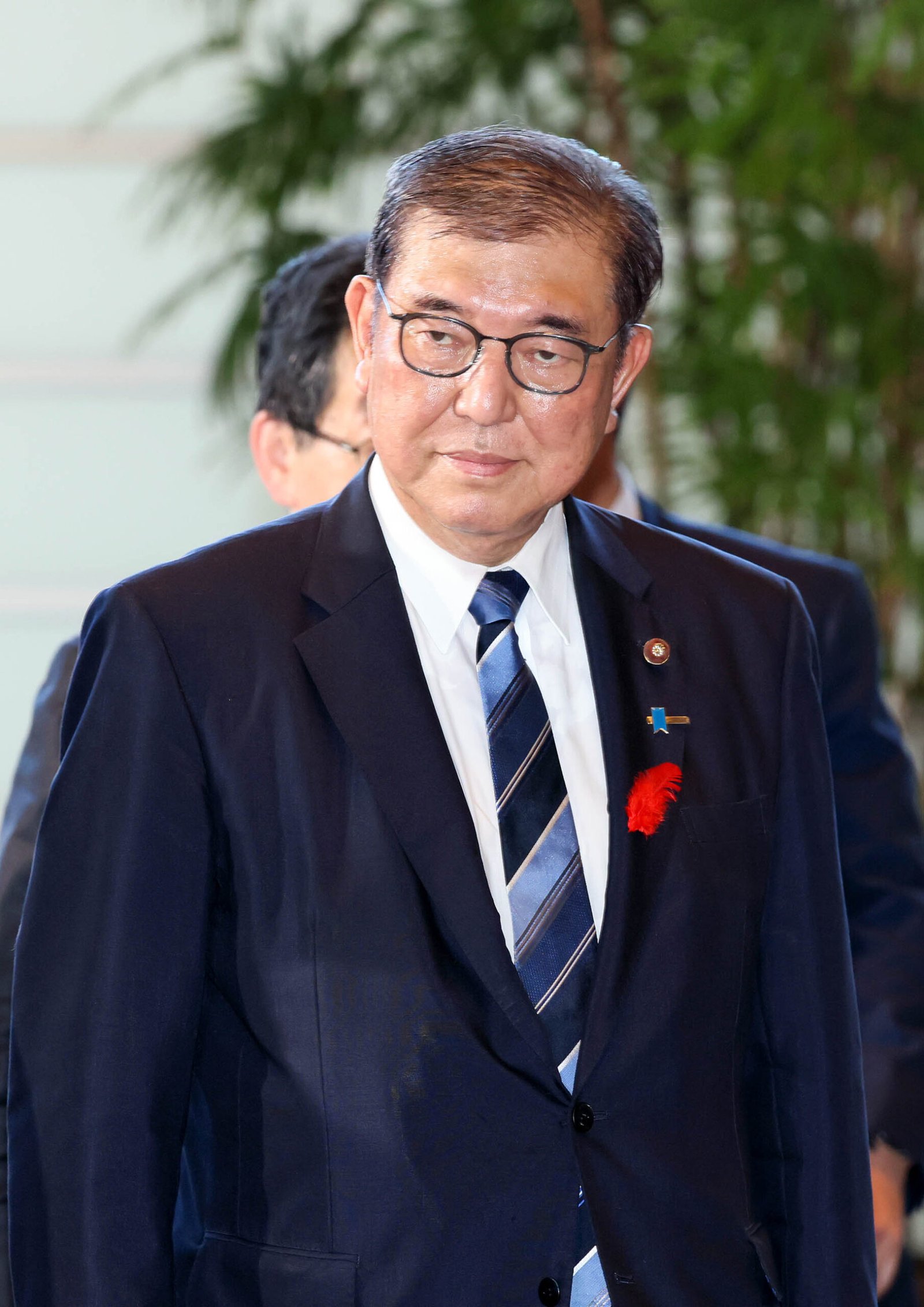Ishiba To Propose “Happiness Index” Amid Economic, Demographic Challenges
- Japan’s PM Shigeru Ishiba is set to propose a new ‘happiness index’ to tackle economic and demographic challenges.
- Ishiba plans to increase Japan’s average minimum wage to 1,500 yen by 2030, enhancing public happiness.
- He is expected to address Japan’s aging population crisis and launch a new disaster management ministry.
- The ‘happiness index’ signifies a shift from purely economic indicators to a comprehensive measure of national prosperity.
In a groundbreaking move, Japan’s Prime Minister Shigeru Ishiba is set to propose a new ‘happiness index’. This announcement is expected to be made during his first parliamentary policy speech on Friday, as reported by local media. The happiness index, a joint initiative between the public and private sectors, forms a part of Ishiba’s comprehensive strategy to tackle the country’s economic challenges and demographic decline.
Ishiba, 67, assumed the role of Prime Minister on Tuesday, following a closely contested ruling party leadership vote. His victory was a testament to his political acumen and the faith placed in him by his party, the Liberal Democratic Party (LDP). Ishiba has expressed his intention to call a snap election on October 27, a strategic move aimed at consolidating his mandate for policies that include increased support for regional governments and low-income households.
The Prime Minister’s policy speech is eagerly anticipated, with many speculating on its content. While it remains unclear how he will address foreign policy matters, reports suggest that Ishiba will likely reaffirm his commitment to combat inflation and announce a new monetary stimulus package.
Ishiba’s Economic and Demographic Plans
This comes after the yen experienced a surge when the LDP voted Ishiba as their leader, largely due to his support for the Bank of Japan’s exit from its ultra-loose policies. However, Ishiba has since expressed his belief that the current environment is not conducive for further interest rate hikes, causing the Japanese currency to dip.
In a bid to bolster per-capita GDP in the world’s fourth-largest economy, Ishiba plans to increase Japan’s average minimum wage to 1,500 yen ($10.22) by 2030, a significant rise from the current 1,055 yen. This initiative, along with the proposed happiness index, is part of his vision to enhance the public’s level of happiness.
Ishiba’s policy speech is also expected to address what he terms as a silent crisis – Japan’s rapidly aging population. This demographic challenge, he believes, strikes at the very core of the nation. His proposed solutions to this issue will be keenly observed, given its far-reaching implications on the country’s social and economic fabric.
Addressing Disaster Management and Nuclear Energy
Another significant topic that Ishiba is likely to discuss is the launch of a new disaster management ministry. Given Japan’s vulnerability to earthquakes and floods, this move is seen as a proactive measure to mitigate the impact of such natural disasters. The Prime Minister is also expected to emphasize the importance of nuclear energy, a contentious issue in Japan. While the business lobby supports nuclear power, the public remains cautious, especially in the wake of the 2011 tsunami-triggered disaster in Fukushima.
Takahide Kiuchi, an executive economist at Nomura Research Institute and a former Bank of Japan board member, opined that Ishiba’s speech is likely to be crafted with a keen awareness of the upcoming general election. He suggested that the Ishiba government is prioritizing winning the election and consolidating its power base.
Historically, the concept of a ‘happiness index’ is not entirely new. Bhutan, a small Himalayan nation, has been using Gross National Happiness (GNH) as a measure of its progress since the 1970s. The GNH index, which prioritizes the well-being of its citizens over economic growth, has been lauded globally as a progressive and holistic approach to development. Ishiba’s proposal of a similar index for Japan signifies a shift in focus from purely economic indicators to a more comprehensive measure of national prosperity.
In conclusion, Prime Minister Shigeru Ishiba’s impending policy speech and the announcement of the ‘happiness index’ mark a pivotal moment in Japan’s political landscape. As the country grapples with economic and demographic challenges, Ishiba’s innovative and people-centric policies could herald a new era of governance. However, the success of these initiatives will ultimately depend on their implementation and the public’s response. As Japan awaits the Prime Minister’s speech, the world watches with keen interest.












Post Comment